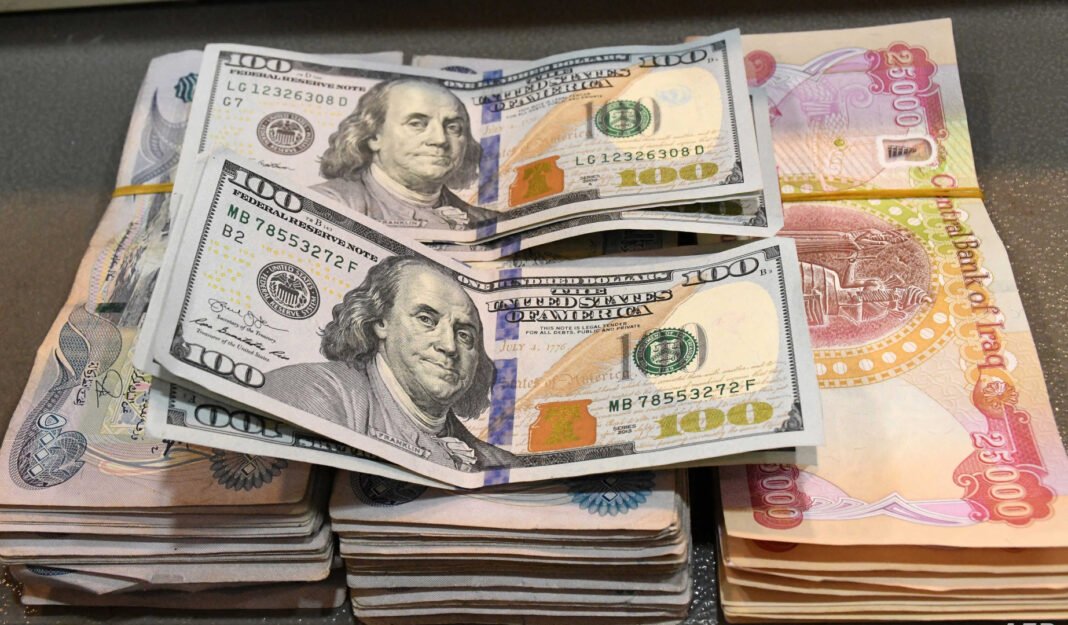Dollar-Iraqi dinar exchange, on Tuesday, Iraq experienced a slight increase in the exchange rate of the U.S. dollar against the Iraqi dinar. This change affected currency markets in both Baghdad and Erbil, with the rates rising across central exchanges and local currency shops.
In Baghdad, the opening rates at the central Al-Kifah and Al-Harithiya stock exchanges settled at 141,500 dinars for every 100 dollars. This marked a slight climb from Monday’s rate of 141,300 dinars. The dollar-Iraqi dinar exchange rate increase continued through the morning as trading picked up.
Currency exchange stores in Baghdad also adjusted their prices. The selling rate reached 142,500 dinars, while the buying rate dropped to 140,500 dinars per 100 dollars. These changes showed a continued fluctuation in market supply and demand.
In Erbil, the regional capital of the Kurdistan Region, rates mirrored the upward trend. The selling price reached 141,550 dinars per 100 dollars, while the buying price stood at 141,350 dinars. Traders in Erbil responded to national shifts while keeping regional supply in balance.
This dollar-Iraqi dinar exchange rate increase reflects broader market uncertainty. Many factors can impact exchange rates in Iraq, including central bank decisions, global oil trends, trade flows, and regional political developments.
Iraq’s economy depends heavily on oil exports, and any shifts in oil prices can directly affect currency performance. Higher oil revenues often strengthen the dinar, while declines in oil or delays in government payments can weaken it.
Moreover, ongoing inflation concerns and demand for U.S. dollars continue to influence market behavior. Importers often require U.S. currency for international transactions, which can drive demand and push the rate higher.
Currency traders across Baghdad and Erbil closely monitor the rates daily. Small movements, even just 200 dinars, can influence short-term trading and long-term expectations. The Central Bank of Iraq may also step in to adjust policy if fluctuations continue.
As the dollar-Iraqi dinar exchange rate increase continues to impact markets, consumers and businesses are adjusting. Importers may face higher costs, while those receiving remittances in dollars might benefit slightly from improved exchange returns.
Iraq’s financial sector will likely keep watching oil revenues, U.S. interest rates, and regional trade policies in the coming weeks. All these factors will play a role in shaping the dinar’s stability moving forward.


